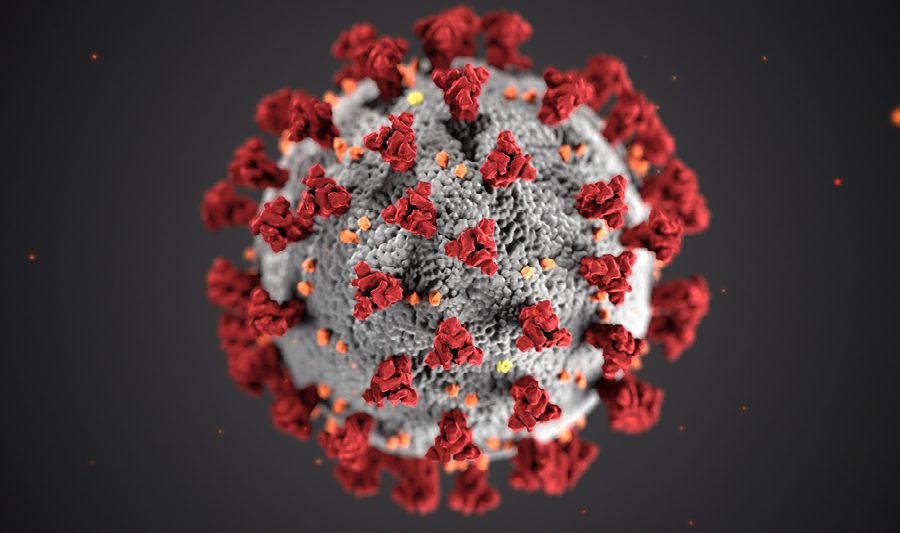The COVID Rules have changed again but the RISKS haven’t. Claims will come.
PP-L Biosafety opens access to its Expert Panel.
COVID-19 and Long-Covid threaten the health & safety of people across the globe and cause intense disruption and distress across all sectors of the economy. Even now as this Coronavirus continues to evolve, it is being referred to as endemic, and here for the foreseeable future. Private and Public Sector organizations will also need to continually adapt and evolve accordingly, and to mitigate risk.
“The consequences and liabilities of not getting ventilation correct, given the new regulations now mandate improvements to occupational health and safety through better infection prevention and control against pathogens are very significant indeed.”

The pandemic has spurred a substantial number of litigation filings that range from single-claimant employment claims to £multi-billion breach of contract cases around the world. Litigation is now starting to manifest in the UK. However, these represent only the beginning; COVID-related litigation will increase significantly, as has been seen already in the USA, because of both of the short and long-term damage that the disease can cause to people, contracts, and businesses.
In terms of pure economics, Covid outbreaks disrupt operations and potentially, represent a business-critical risk to businesses not being able to perform their contractual obligations to their clients. During this pandemic, most have taken a rounded view to work through disruption and delays with the supply chain but depending on the quantum, such an approach is not always viable because of the consequential impact when one is reliant upon a more complex supply chain interdependencies.
In these uncertain and challenging times of pandemic, not only does Covid-19 represent the most significant occupational health & safety hazard to occupants within buildings that the world has ever seen before of this scale but also, in certain settings, other infection risks have re-emerged and sometimes, inadequate provisions made. There has been a rise in morbidity from other more traditional pathogenic hazards, particularly in clinical, care and, food manufacturing environments.
Buildings have the power to make us sick or keep us well. Airborne pathogens such as Coronavirus, are difficult for those in control of conventional environments and operations to understand and, unfortunately, therefore, mitigate risk. If businesses are failing to mitigate the exposing their workforces to increased infection risk, there are heightened personal health risk implications to workers, potential operational disruption to the business and so, losses can occur with personal injury and corporate commercial damage.
The challenge faced by Employers and those in control of buildings or transport systems is that the Health & Safety Laws and all the associated H&S Regulations have not changed; indeed, supplementary guidance and regulations are regularly reviewed, updated, and issued to help you to protect workers and occupants indoors from Covid-19, as more data has become available.
The Regulator in the UK, the HSE, has guidance on ventilation for keeping workplaces safe from COVID-19 that is quite different today, as we begin 2022, than it did at the end of 2020, for example. Indeed, The Building Regulations – Part F: Ventilation, has been updated in January 2022 specifically aimed at improving the pandemic resilience of the built environment from airborne infectious diseases, such as Covid-19.
Paul Waldeck, Technical Director at PPL-Biosafety commented “ Unless you are an expert, it has been difficult for stakeholders or those in control of premises to precisely nail down what constitutes “adequate provision” in terms of compliance for workplace ventilation against the coronavirus hazard.”
“The new Building Regulations – January 2022 for the UK reflect a reasonable standard of care to measure against, amongst other historical and more recent evidence, when assessing whether occupiable spaces are, insofar as is reasonably practicable, safe, without health risks, and adequate as regards facilities and arrangements for occupant’s welfare whether at work, on transport or when visiting premises.”
“Even now, some organisations continue to observe outdated Covid-Secure Workplace Risk Assessments that make no mention of the critical need to provide adequate ventilation which, given that Covid is, principally, an airborne transmitted disease, and hence, the primary importance of environmental mitigations, such as solely fresh air ventilation arrangements, or germicidal ultraviolet devices or HEPA air cleaners.”
As a person in control of premises, keeping abreast of one’s workplace hazards, guidance, and updating health and safety arrangements to reflect appropriate data and risk, is critical to compliance and duty of care. Firms are at risk of prosecution or personal injury claims if they fail to do so.
Paul concluded by saying that, “COVID-19 is a global problem, and keeping abreast of changing guidance and sometimes inconsistent advice is a challenge for the markets, and so, PPL-Biosafety has assembled some of the foremost experts from around the globe to help organisations and their professional advisors with compliance, to help them mitigate against many of the risks, and to avoid, progress or defend potential disputes that might arise from COVID-19, its variants, other common and emerging pathogenic threats.
- We can act for the Claimant; or
- We can act for the Defendant; and,
- We can act for those in control of premises to mitigate risks in the first place.
Please also refer to:
https://www.ppl-biosafety.com/covid-19-expert-witness/
https://www.ppl-biosafety.com/meet-the-team/
Health and Safety at Work etc. Act 1974 (legislation.gov.uk)
Contact us in the Strictest Privacy & Confidence: enquiries@ppl-biosafety.com





Leave a Reply